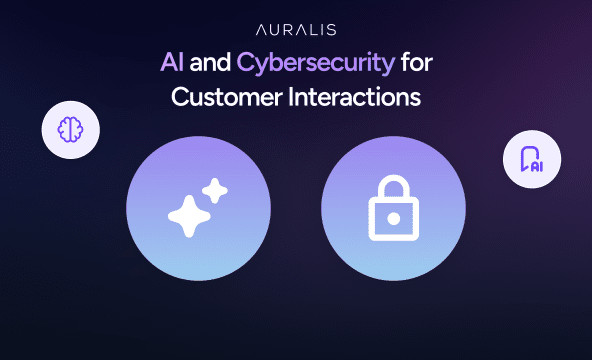Secure AI customer support
Secure AI customer support refers to the integration of artificial intelligence (AI) tools in customer service processes that prioritize the protection of customer data and ensure compliance with privacy and security regulations. As AI becomes more prevalent in customer support systems, the security of the data handled by these systems is of paramount importance. Ensuring that AI solutions used for customer service meet high security standards helps build trust with customers, safeguards sensitive information, and prevents potential breaches or misuse of data.
One of the most critical components of secure AI customer support is data encryption. AI systems that handle sensitive customer data, such as personal identification information, financial details, or health records, must encrypt this data both in transit and at rest. This ensures that if the data is intercepted or accessed by unauthorized parties, it remains unreadable and secure. Encryption is essential for safeguarding data privacy, and businesses that utilize AI in customer support must ensure their systems are compliant with data protection regulations like GDPR, CCPA, or HIPAA, which require strong data security measures.
Access control is another key security measure for secure AI customer support. Only authorized individuals should have access to sensitive customer information, and businesses should implement role-based access controls and authentication protocols such as multi-factor authentication (MFA) to secure AI systems. This prevents unauthorized access to sensitive customer data and ensures that AI systems are used only by employees with the appropriate permissions. Additionally, AI tools should be regularly audited to detect any unusual activity or potential security vulnerabilities, ensuring proactive risk management.
Data anonymization and tokenization are additional practices that enhance security in AI-powered customer support. These techniques replace sensitive customer data with unique identifiers or tokens, which can be used in place of real data during transactions or processing. For example, instead of storing a customer’s actual credit card number, tokenization replaces it with a token that represents the data but has no value to attackers. This reduces the exposure of sensitive information while still allowing AI systems to perform necessary functions, such as processing payments or verifying identities.
Incorporating privacy-by-design principles into AI customer support systems also helps ensure that privacy and security are prioritized from the outset. AI solutions should be designed to minimize the collection of personally identifiable information (PII) and ensure that data is only used for its intended purpose. For example, when customers interact with an AI chatbot, the chatbot should collect only the necessary information needed to resolve the issue and immediately delete any data not required for future interactions. This minimizes data retention and reduces the risk of exposing unnecessary personal data.
Compliance with data protection regulations is another fundamental aspect of secure AI customer support. As privacy laws evolve globally, businesses must ensure their AI systems are fully compliant with the latest regulations, including GDPR, CCPA, and other local or international laws. Compliance involves obtaining explicit customer consent before collecting or processing their data, providing customers with access to their data, allowing them to delete or update it, and ensuring the right to opt-out of data collection when necessary. By adhering to these regulations, businesses not only avoid hefty fines but also demonstrate their commitment to safeguarding customer privacy.
To enhance security, AI systems must be regularly updated to address emerging threats. Cybersecurity threats are continuously evolving, and businesses must ensure their AI tools are up-to-date with the latest security patches and protocols. AI systems should also be monitored for anomalies or suspicious activities that could indicate a data breach or cyberattack. Implementing automated monitoring tools that continuously scan AI-powered customer support systems for potential vulnerabilities ensures that businesses can quickly identify and mitigate any security risks.
Human oversight remains an essential element of secure AI customer support. While AI can effectively handle routine tasks and process vast amounts of data, human agents should be involved when issues arise that require empathy, complex decision-making, or ethical judgment. Furthermore, agents can help ensure that AI systems are functioning correctly and that data security practices are being followed. Having a process for escalating critical or sensitive issues to human agents ensures that customers’ concerns are addressed safely and with care.
In conclusion, secure AI customer support is crucial for protecting customer data and maintaining trust in AI-powered systems. By employing strategies like data encryption, access control, anonymization, compliance with privacy laws, and regular system updates, businesses can safeguard sensitive customer information and ensure their AI tools operate securely. With human oversight and proactive security measures in place, businesses can leverage the power of AI in customer support while protecting both customer privacy and the company’s reputation.

- Articles
-
 Amy
Amy
- 7 min read
